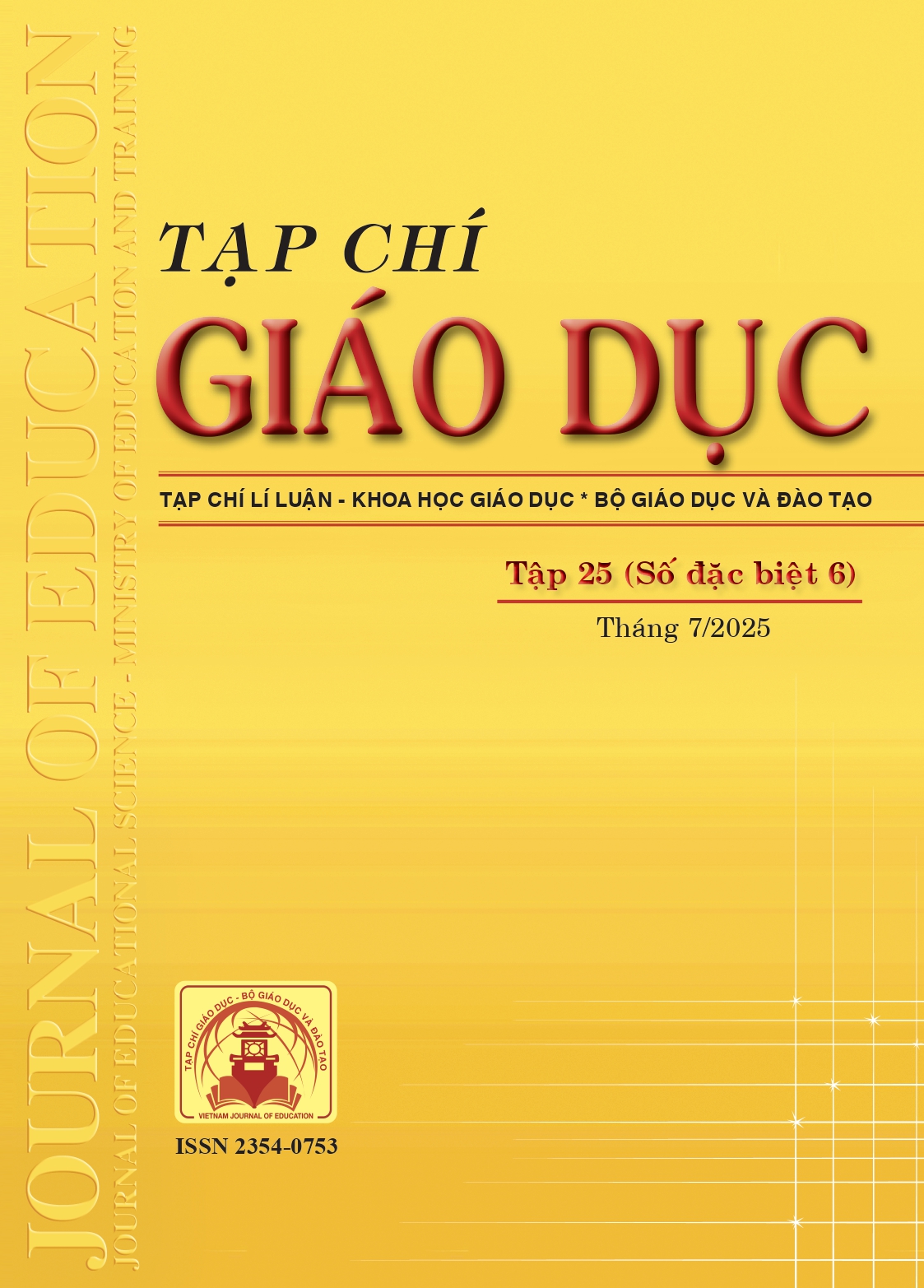Ứng dụng công nghệ thực tế tăng cường (AR) trong dạy học môn Tự nhiên và Xã hội lớp 3
Tóm tắt
Amidst Vietnam’s primary education reform focusing on competence development, Grade 3 Natural and Social Studies faces challenges in knowledge visualization and student engagement. Augmented Reality (AR) offers potential solutions, yet its application is constrained by limitations in infrastructure, digital resources, and teacher competence. This study was conducted to propose effective AR integration strategies within this context. This study proposes a five-step AR-integrated lesson design model grounded in modern educational theories and the TPACK framework. Illustrated through a specific Grade 3 Natural and Social Studies lesson, the model demonstrates potential for enhancing students’ visual thinking, memory retention, and learning motivation. The research also highlights AR’s compatibility with other active learning models like the flipped classroom, project-based learning, and STEAM. The findings provide a theoretical foundation and a practical application model for integrating AR into primary education in Vietnam.
Tài liệu tham khảo
Azuma, R. T., Baillot, Y., Behringer, R., Feiner, S., Julier, S., & MacIntyre, B. (2001). Recent advances in augmented reality. IEEE Computer Graphics and Applications, 21(6), 34-47.
Bacca, J., Baldiris, S., Fabregat, R., Graf, S., & Kinshuk (2014). Augmented reality trends in education: A systematic review of research and applications. Educational Technology & Society, 17(4), 133-149.
Billinghurst, M., & Duenser, A. (2012). Augmented reality in the classroom. Computer, 45(7), 56-63.
Bruner, J. S. (1966). Toward a theory of instruction. Harvard University Press.
Gardner, H. (1983). Frames of mind: The theory of multiple intelligences. Basic Books.
Lê Thị Thanh Hà (2023). Thách thức khi ứng dụng AR trong giáo dục tiểu học tại Việt Nam. Tạp chí Thiết bị giáo dục, 234(2), 41-46.
Mishra, P., & Koehler, M. J. (2006). Technological pedagogical content knowledge: A framework for teacher knowledge. Teachers College Record, 108(6), 1017-1054. https://doi.org/10.1111/j.1467-9620.2006.00684.x
Piaget, J. (1972). The Psychology of the Child. Basic Books.
Vygotsky, L. S. (1978). Mind in Society: The Development of Higher Psychological Processes. Harvard University Press.
Wu, H. K., Lee, S. W. Y., Chang, H. Y., & Liang, J. C. (2013). Current status, opportunities and challenges of augmented reality in education. Computers & Education, 62, 41-49.
Đã Xuất bản
Cách trích dẫn
Số
Chuyên mục
Giấy phép

Tác phẩm này được cấp phép theo Ghi nhận tác giả của Creative Commons Giấy phép quốc tế 4.0 .












